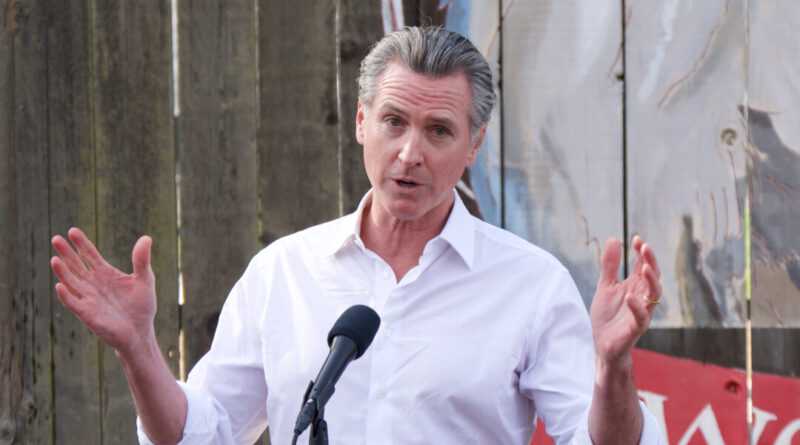Newsom Warns of Uncertain Fiscal Outlook for California with Incoming Trump Administration
The governor recommended a prudent stance regarding the incoming policies of President-elect Donald Trump and their possible effects on California.
Governor Newsom believes that trade, tariff, and immigration policies suggested by Trump during his campaign could adversely impact California if enacted.
“Such changes could fundamentally influence and alter the discussion in this country and affect our state’s revenue,” Newsom commented.
He expressed apprehension regarding the proposed $2 trillion in cuts by the anticipated Department of Government of Efficiency.
Critics have raised concerns over the proposed $17.4 billion increase in general fund spending.
“There’s a spending issue,” State Senator Roger Niello remarked to The Epoch Times. “The governor discusses the funding we’re allocating, but overlooks how effectively we’re utilizing these funds. What are we achieving? What are the results?”
He expressed worry regarding the initiative to expend nearly $25,000 per pupil—an ascent from $14,000 a decade prior—especially considering the number of students who are failing to reach California’s academic benchmarks. Fewer than half of California students achieve proficiency in language arts, while around two-thirds do not meet math and science standards.
“The outcomes of our K-12 education system are utterly disappointing,” Niello declared. “We’re investing significantly in K-12 education but, quite frankly, failing to get our money’s worth.”
Republican Assembly Caucus members criticized the strategy to utilize $7.1 billion in rainy-day funds to ensure budgetary balance.
“Californians made it clear in the last election that they want reduced prices, safer neighborhoods, and a government that serves their interests,” he stated. “This budget falls far short of achieving those goals.”
Another lawmaker asserted that the state’s residents deserve fundamental changes from the Legislature to enhance their lives.
“It’s time to put aside ideology and ambitions and focus on what’s right for our residents,” Assemblyman Heath Flora commented. “The challenges facing Californians have reached a critical point under Governor Newsom; he needs to demonstrate his commitment to making tangible improvements.”
How to finance rehabilitation programs mandated by the newly adopted Proposition 36—which increases penalties for repeat offenders while allowing eligible defendants to avoid incarceration by completing mental health and substance abuse programs—remains a contentious issue.
After confronting a nearly $73 billion budget shortfall last year, the state adopted its budget with a forward-looking two-year strategy aimed at managing finances and averting another budget crisis.
For the current fiscal year, revenues have exceeded forecasts by $16.5 billion due to higher-than-expected capital gains tax collections, according to the state’s Department of Finance.
“One unexpected and welcome development was this revenue surge… which is both substantial and significant,” Newsom noted.
He described the volatility in tax collections, driven by fluctuating stock market performance, as a “friend and foe” due to the unpredictable nature of revenue estimations.
The proposed budget includes state reserves of approximately $16.9 billion.
“The state recognizes the need to save more for future challenges,” Newsom stated.
He advocated for reforms to existing laws restricting the amount of money the state can reserve, suggesting that the current 10 percent cap should at least be doubled.
The governor emphasized the state’s commitment to addressing unfunded healthcare and pension liabilities.
Improving government operations is a key focus of the new budget, including using artificial intelligence to eliminate redundancies and expedite procedures, with a goal to save $3.5 billion over the next two years.
Emphasizing California’s position as the world’s fifth largest economy, with a population exceeding that of more than 21 states combined, Newsom stated, “The theme of the year is accountability.”
Specifics of the budget proposal will be disclosed on January 10 by the state’s Finance Department.




